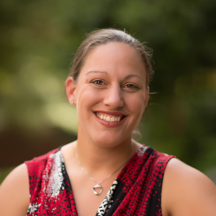The Higher Ed Coaches Special Interest Group, organized by UNC School of Medicine’s Rebekah Layton and NC State’s Maryam Mohaghegh, increases awareness of higher ed coaching and builds a community to serve academia – an effort gaining attention of higher ed professionals across the country.

A shared principle of both coaching and education is to empower and develop the potential of its people. With the increased challenges posed by the COVID-19 crisis, institutions of higher education can turn to coaching to revisit a focus on the true value of higher education. Coaching in higher education provides the bridge connecting the two. It might just be the solution to challenges many institutions are facing to enhance their relevance for those that can harness the power of coaching to lead effective transformations to combat the impact of the COVID-19 pandemic.
“Education empowers individuals with knowledge and skills in order to bring out their potential,” as does the coaching process, said Maryam Mohaghegh, from the International Coaching Federation Raleigh Area Chapter (ICF-RAC) and lecturer and coach at North Carolina State University. “Partnering with the client can empower them to navigate through life to fulfill their potential.”
Similarly, ICF defines coaching as “partnering with clients in a thought-provoking and creative process that inspires them to maximize their personal and professional potential.” Coaches help clients to clearly define goals and create effective plans that align their actions with those goals. There are currently more than 30,000 ICF-certified coaches practicing in 130 countries and territories. While higher education is facing a crisis to demonstrate the value of education nationally, coaches arrayed across academia enhance preparation of students and faculty to serve as our future workforce and policy leadership.
The purpose of the Higher Education Coaches Special Interest Group is to increase awareness of higher ed coaching and to build a community of practice that can serve academia by offering coaching as a central aspect of the educational environment. As such, the group is gaining the attention of higher ed professionals across the country supporting the synthesis of coaching and higher education.
The Higher Ed Coaches Special Interest Group (HEC-SIG) was organized by Rebekah Layton, PhD, director of professional development at the UNC School of Medicine Office of Graduate Education, and Mohaghegh, who both noticed how difficult it was to find those identifying as “coaches in academia.” Instead, coaches often identified as “a professional coach” or “an executive coach.” This barrier to recognizing, connecting, and creating community for coaches in higher education was standing in the way of combining the power of coaching and education to serve as the bridge to becoming the best self one could be.
The first iteration of a coaching community in higher education resulted in the formation of the “Coaches in Academia” group by Mohaghegh. Searching for a group to share knowledge and practice with fellow coaches in higher education, Layton, an ICF-certified coach, connected with Mohaghegh. Together they envisioned and developed a structured program within the local chapter ICF-RAC to accomplish both goals, leading to the creation of the HEC-SIG. Layton’s vision detailing a roadmap forward allowed them to bring stakeholders together to create the group.
Thirty-five higher education professionals and coaches from the Raleigh-Durham area make up this unique community, with a wide variety of experience coaching in a higher education environment. Some work with undergraduate or graduate students at their respective institutions, while others primarily serve faculty, administrators, or university leadership. Their areas of expertise include career coaching, health and wellness coaching, teamwork coaching, and academic advising. Niche coaching includes working with student leaders, students of color, or international students.
Parallel leadership teams include campus representative teams who work at or with local institutions including community colleges and historically black colleges/universities (HBCUs to cultivate communities of practice at each institution. The publication committee reviews current higher education coaching research with the goal of publishing on needs and opportunities in this area.
A celebratory gala is planned for March 2021 to provide an opportunity to recognize members’ accomplishments, creation of the group, and to introduce other higher ed professionals to the group and its work. A second cohort is planned to launch in late spring 2021.
For more information about the Raleigh area higher ed coaches group, HEC-SIG please contact Rebekah Layton or Maryam Mohaghegh. For more information about the ICF Raleigh Area Chapter contact: admin@icfraleigh.org.
More information about the International Coaching Federation can be found on their website, and on ICF’s July 2020 Membership and Credentialing Fact Sheet.